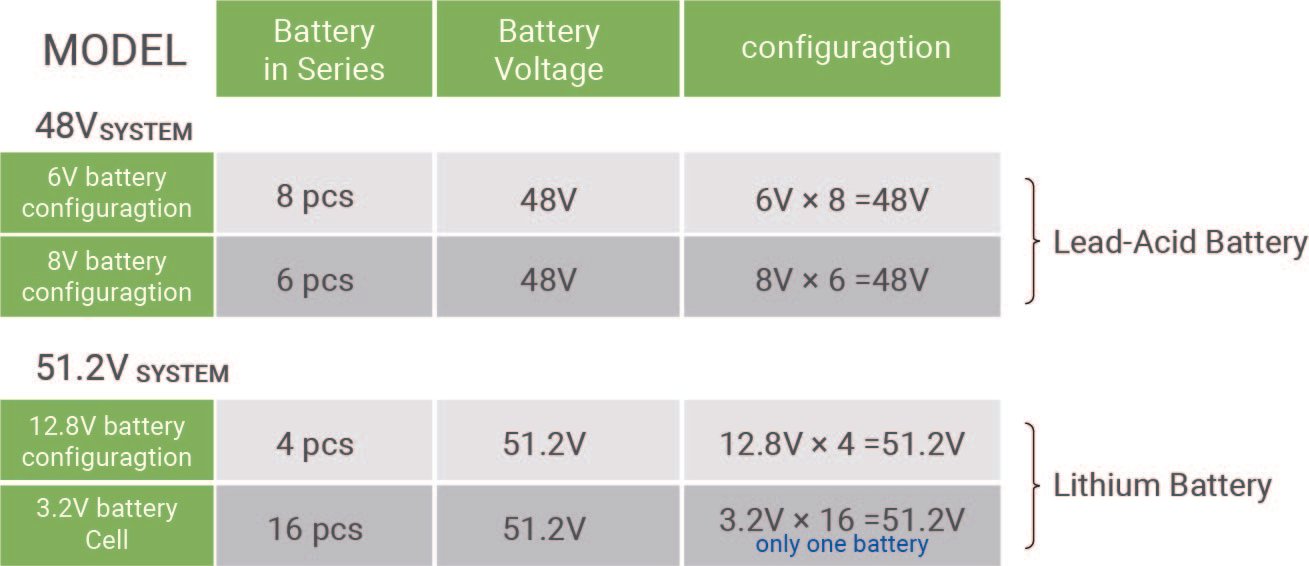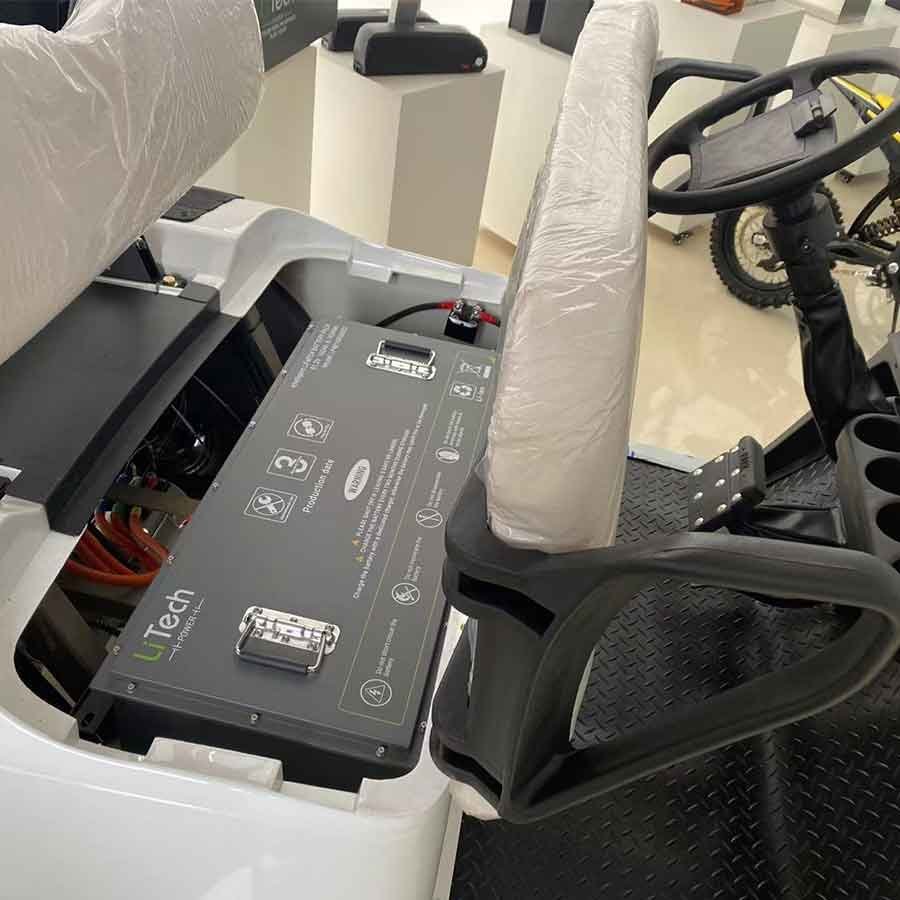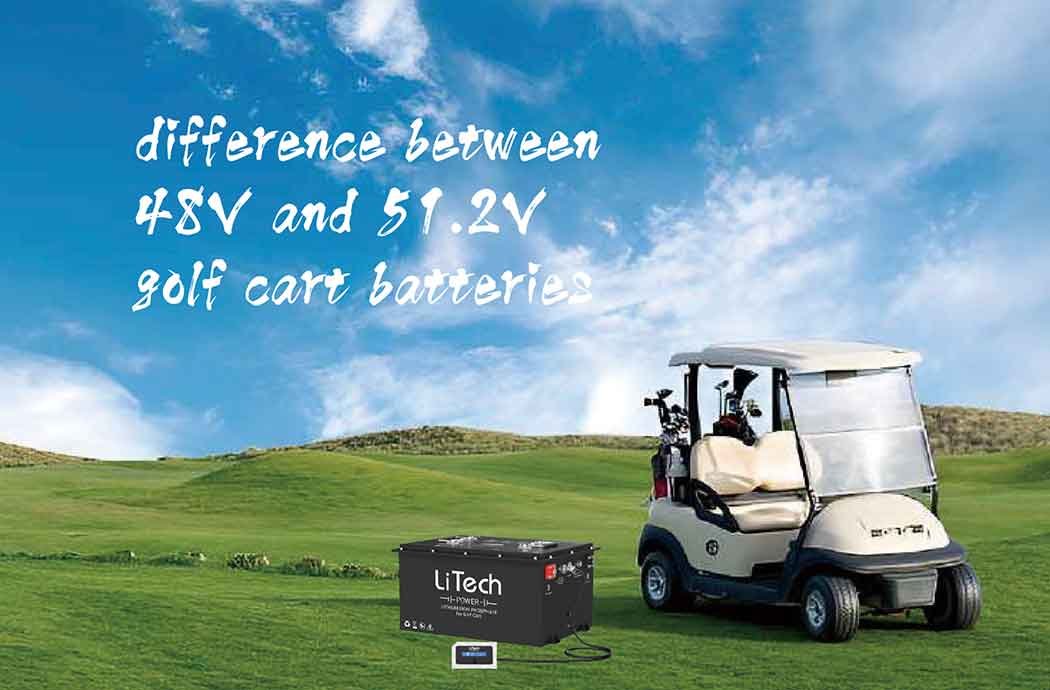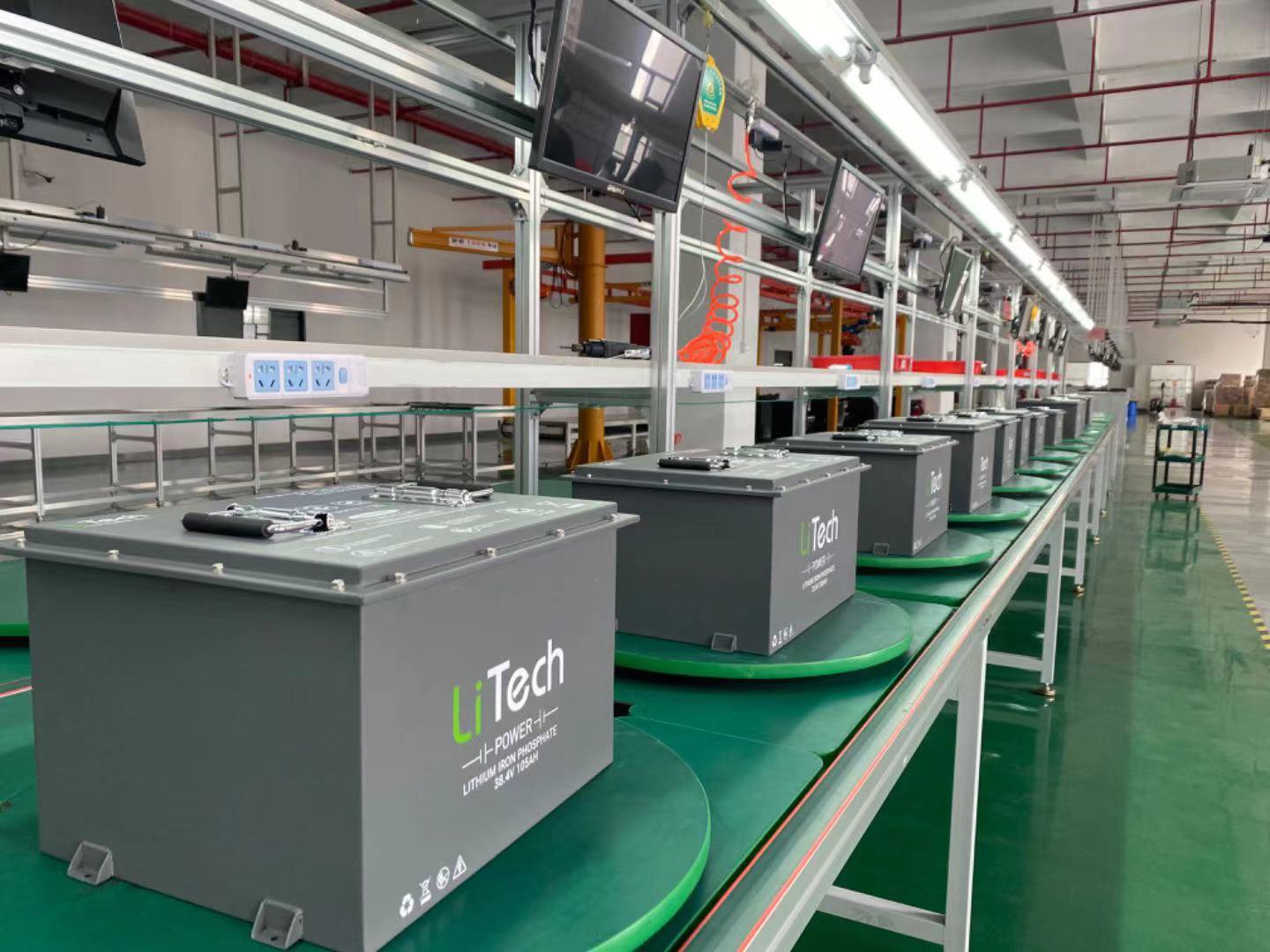What’s the difference between 48V and 51.2V golf cart batteries
Distinguishing Between 48V and 51.2V Batteries for Golf Carts
When upgrading or replacing a golf cart battery, one common question is the difference between 48V and 51.2V batteries.
Electric golf carts use both battery types. The main difference is the battery chemistry: traditional lead-acid or modern lithium-ion. This article looks at how voltage impacts performance. It also explains why lithium-ion batteries, usually rated at 51.2V, are a popular choice.
Voltage Differences: 48V vs. 51.2V
The nominal voltage of a traditional lead-acid battery pack is typically 48V. This configuration is achieved by connecting multiple 12V or 8V lead-acid batteries in series.
Lithium-ion battery packs usually have a 51.2V setup. This setup includes 16 lithium iron phosphate (LiFePO4) cells connected in series. Each cell has a nominal voltage of 3.2V. While the difference of 3.2V may seem small, it has significant implications for performance and efficiency.

Performance and Efficiency
Consistent Voltage Output: Lead-acid batteries lose voltage when in use. This means their voltage drops a lot as they discharge. This can lead to decreased motor performance and sluggish acceleration. Conversely, lithium-ion batteries provide a steadier battery voltage during the discharge process, guaranteeing a uniform power supply, better battery performance.
The discharge rate of lithium batteries is usually about 1C. In contrast, lead-acid batteries typically have a discharge rate of about 2C.
Energy Density and Weight: Lithium-ion batteries have a higher energy density. This means they can store more energy in a smaller and lighter package. A lithium-ion 51.2V battery pack can weigh up to 60% less than a 48V lead-acid pack. This reduces the weight of the golf cart and improves its efficiency.
Charging Efficiency: Lead-acid batteries are not particularly efficient when charging. They need longer charge times because of their chemical properties.
Lithium-ion batteries charge quickly and efficiently. They often reach full capacity in just a few hours, and has a longer battery life. In contrast, lead-acid batteries take 8 to 10 hours to charge.
Lifespan and Maintenance: Lead-acid batteries usually last for 500 to 1000 charge cycles life. In contrast, lithium-ion batteries can last for 2000 to 5000 cycles it is a deep cycle battery. Additionally, lithium-ion batteries require no maintenance, whereas lead-acid batteries need regular watering and cleaning of terminals to prevent corrosion.

Motor Characteristics and Compatibility
Motor Performance with Different Voltages: Golf cart motors usually work within a specific voltage range. Both 48V and 51.2V batteries fit this range. Lithium-ion batteries give a more stable voltage output. This helps keep motor performance steady, improves acceleration, and reduces battery power loss over time.
Compatibility with Golf Cart Motors: Most 48V golf cart motors can work well with a small voltage increase to 51.2V. It is important to make sure that the motor controller and electronic parts can handle the higher voltage. Some older controllers may require recalibration or an upgrade to optimize performance and prevent overheating.
Efficiency Gains: Lithium-ion batteries maintain a higher voltage during their discharge cycle. This allows the motor to work more efficiently, using less current to produce the same power output. This can lead to improved range and battery longevity compared to lead-acid systems.
Compatibility Considerations
To switch from a 48V lead-acid system to a 51.2V lithium-ion system, you need to check the golf cart’s controller. You also need to check the charging system for compatibility. Many modern golf carts can use lithium-ion upgrades. However, some may need adjustments or a compatible charger to work well and last longer.
Conclusion
For years, 48V lead-acid batteries have been the standard. However, 51.2V lithium-ion batteries provide better performance, efficiency, and lifespan. Upgrading to lithium-ion technology rechargeable battery can significantly enhance the golf cart’s power, improve performance, reduce weight, and eliminate maintenance concerns.
Most golf cart motors work well with 51.2V lithium-ion batteries. This makes it easy to switch with the right controller and charger changes. For those seeking better reliability and long-term value, a 51.2V lithium-ion battery is the smarter choice.






